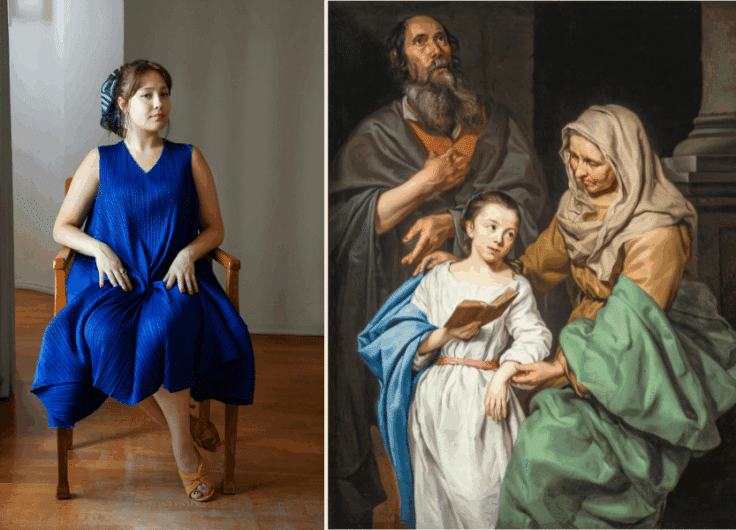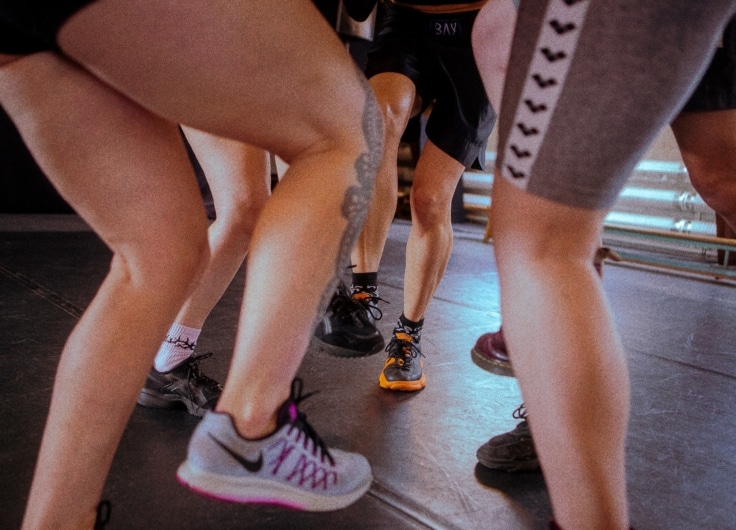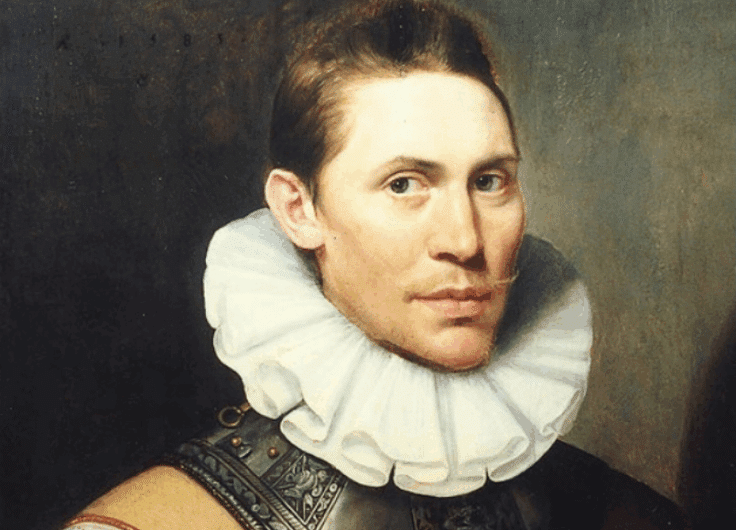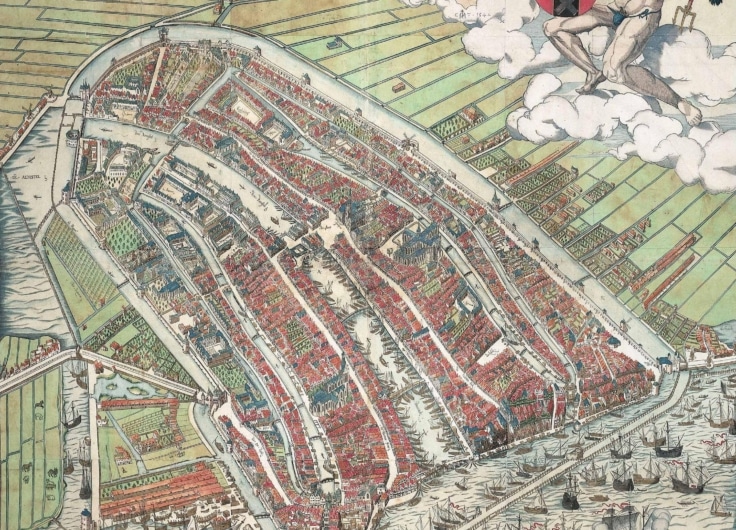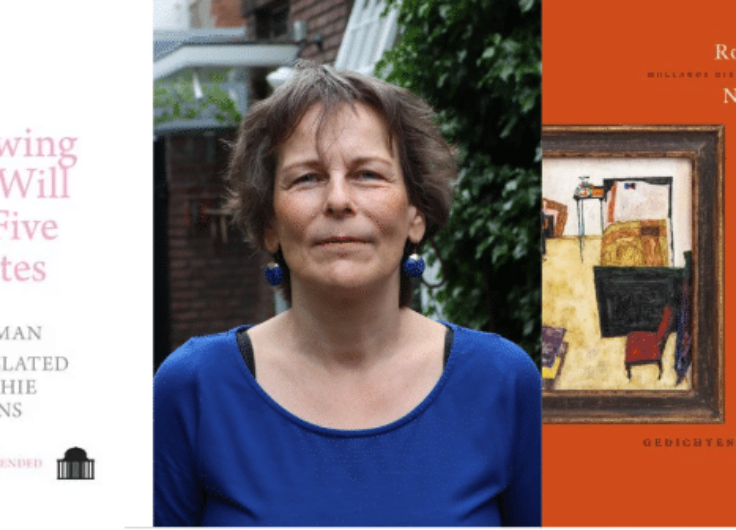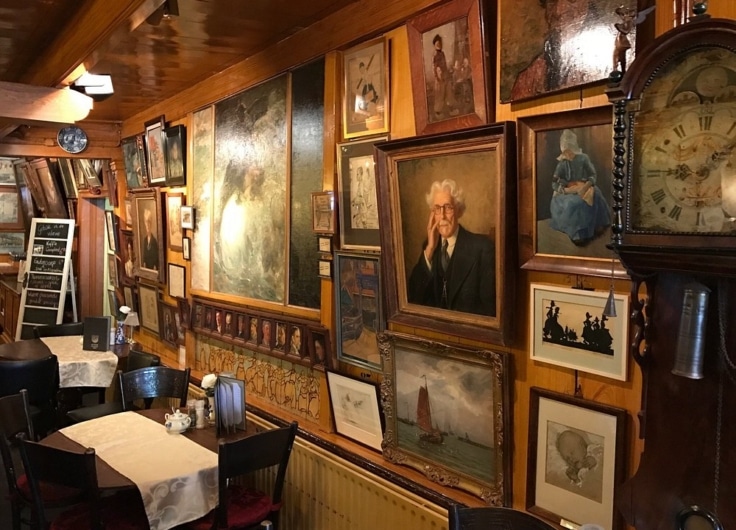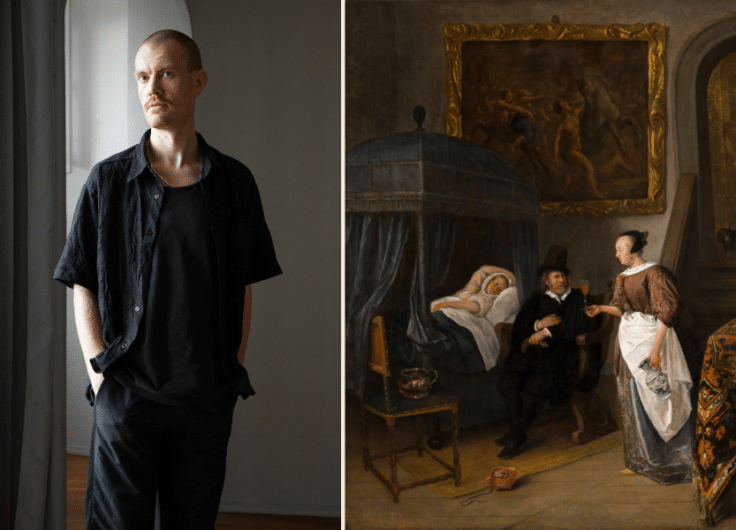Football Can Save the World (A Little Bit)
Football is unquestionably big business, but many clubs and organisations also use their popularity to engage in community service projects. Many in the Low Countries might argue that this is just window dressing, but the truth is that it’s quite a bit more than that.
Football has been completely commercialised in recent decades. Clubs and players are traded for huge sums, wages are astronomical. Even exposed excesses such as corruption and under-the-table financial dealings do not appear to affect the sport, which remains the most popular worldwide. The football industry uses this never-ending popularity to engage in community building and service projects. Is that community service just a cover-up, a distraction from the harsh reality? Or is it more than that?
‘Sport, and certainly football, has been heavily commercialised in recent decades and sport is widely abused to make a profit,’ says researcher and professor Jeroen Scheerder, who teaches Sports and Politics to future sports managers at KU Leuven. ‘But on the other hand, sport lends itself very well to achieve all kinds of social objectives. One need not exclude the other. Yes, sport is partly corrupted, especially at the top; but also, sport can be an engine for social progress. Sufficient research has been done into community building in sport to conclude that it is certainly not just for show; in many cases, it adds value to people’s lives.’
Jeroen Scheerder (KU Leuven): ‘Sport is a learning experience for life. In some ways, football is as worthy as education'
According to Scheerder, that is not so surprising. ‘Sport in general, but football in particular, is a learning experience for life. In some ways, football is as worthy as education. It teaches important lessons in a playful way, and shows students how to deal with profit and loss, respect each other, and engage in fair play,… Sport creates opportunities for people who would otherwise have a harder time finding work. And thanks to the popularity of football, its messages reach people who might otherwise be difficult to approach.’
England as the guide
The idea that it’s possible to build community through football came over from England in the eighties. In Belgium, the King Baudouin Foundation (KBS) was the first to latch on to this idea. ‘We supported integration-promoting initiatives with sport as a means,’ says Ann De Mol, HR manager and advisor at the KBF. ‘In concrete terms, it concerned projects for young people with autism, young people with disabilities, refugees, and others.’
More than three decades later, sport has secured a permanent place in the many projects supported by the KBF. For example, since 2000, the foundation has had a partnership with sports brand Nike, which has a branch in Laakdal (province of Antwerp). ‘We offer our expertise for the selection of projects through an independent jury and provide guidance and support for those projects.’ Football was added in 2005 through the Open Stadium Fund of Els Van Weert, the then State Secretary for Sustainable Development and Social Economy. The KBF sent clubs on working visits to London to witness how ‘British clubs had already built up whole-neighbourhood operations that included health centres, homework and computer classes and so on.’ All the professional clubs in our country were contacted and thanks to the resources from the Open Stadium Fund and the guidance of the KBF, the first steps were taken not only to introduce the concept of community building through football, but also to put it into practice.
But wouldn’t all this also be possible through traditional welfare work or community work? Perhaps, but various studies conducted outside and inside of the Low Countries, including a study undertaken by Paul De Knop, professor at the Vrije Universiteit Brussel, show that the fame of football attracts a wider audience and, moreover, an audience that is usually somewhat suspicious of government initiatives.
“KAA Gent” as an example
All professional clubs in Belgium now have a dedicated community function. One of the clubs invariably praised is AA Gent, where the community-building activities are housed in the separate KAA Gent Foundation. The foundation has eleven employees and directly impacts the lives of approximately 4,500 people every week.
Wim Beelaert has led the Foundation since it was founded in 2009. ‘It was a conscious choice from the start to set up a separate association. We are, of course, part of the larger AA Gent family, and the cooperation is very close. But it is important to maintain segregated accounts, not only to ensure transparency but also to ensure that we have no other interests than those of the community. We have a strictly business relationship with AA Gent, but a very close one,’ says Beelaert.
Jeroen Scheerder also finds the segregation of these accounts very important. ‘We have sufficiently documented that good results are being achieved and community building makes sense. But more research concerning finance is needed. It is in the interest of both the club and the community that the funding is transparent, and we can demonstrate which resources we are deploying, and for what purpose.’
The KAA Gent Foundation has an annual budget of 700,000 euros. Forty-five percent comes from the club, 45 percent from the government (Gent City and OCMW – the Public Centre for Community Wellbeing) and another 10 percent from others, such as the Pro League or the King Baudouin Foundation. In addition, AA Gent also provides accommodation for the eleven employees and logistical support valued at 130,000 euros per year.
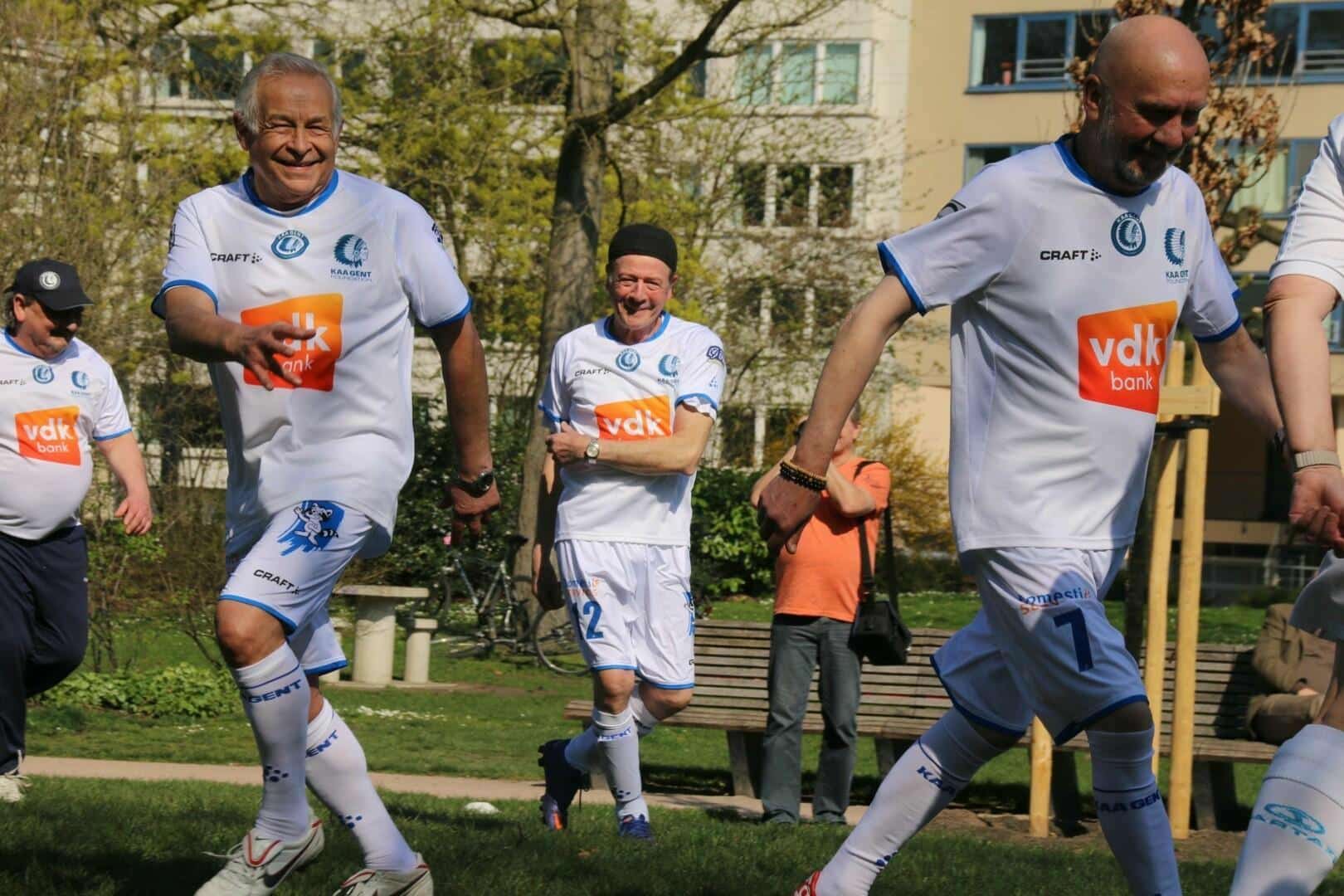 Gent was one of the pioneers in “walking football” for seniors.
Gent was one of the pioneers in “walking football” for seniors.© KAA Gent Foundation
Wim Beelaert makes five-year policy plans with the Foundation. ‘What we do must be in the interest of society. That is crucial for us. That is why we scout out local needs ourselves, and we work closely with other social partners.’ In this way, Gent was one of the pioneers in “walking football” for seniors, which has since become an important instrument in senior policy because it ensures fitter seniors and strengthens social cohesion. The foundation works with the OCMW of Gent. ‘It is healthy, it brings people together, and thanks to the image of the AA Gent club, we attract the attention of people who might otherwise be less interested in such a project,’ says Beelaert.
One new project in the current five-year cycle is neighbourhood football. ‘There are currently more than a thousand children in Gent on a waiting list to join a club. We cannot solve that problem, but we can offer solutions such as neighbourhood football in parks and squares. We do this in collaboration with youth welfare work. This way, the young people can already play football, even if it is not in a club context.’
Wim Beelaert (KAA Gent Foundation): 'Thanks to the image of the AA Gent club, we attract the attention of people who might otherwise be less interested'
The Foundation has developed numerous initiatives in recent years, including activities for underprivileged people, people with mental health issues, a dance group and the Bij Pino community centre in the heart of Gent – Steenakker, the working-class neighbourhood in the shadow of the Ghelamco Arena. Since moving to that new stadium in 2013, the KAA Gent Foundation has made it a priority to develop activities in that area.
The Foundation also forms the basis of the supporters’ work, which is to strengthen the bond between the club and its fans, but above all to involve the fans in the policy of the club. For example, a supporters council and a sounding board group has recently consulted with AA Gent about all the issues that fans find important: the organisation of competitions, club culture and identity, social functioning, supporter experience, ticketing, etc.
Beelaert is also proud that the KAA Gent Foundation, together with Feyenoord from Rotterdam, was one of the founders of EFDN, the European Football for Development Network. Gent and Feyenoord were two of the seven founding members of a network that now consists of 135 clubs and ten professional leagues and football associations from all over Europe. EFDN is a Dutch NGO with headquarters in Breda that promotes football as a means of social functioning and provides a forum where clubs can exchange knowledge.
Working towards a better society
It is no coincidence that the European Football for Development Network is a Dutch NGO. Together with Germany (where, for example, clubs must be half owned by the members, to protect against takeovers), the Netherlands was the first country on the continent to introduce community action through football. This happened, amongst other things, through the Johan Cruyff Foundation, which builds football pitches in cities, and through the More Than Football Foundation, in which the Dutch football association and the professional clubs work together.
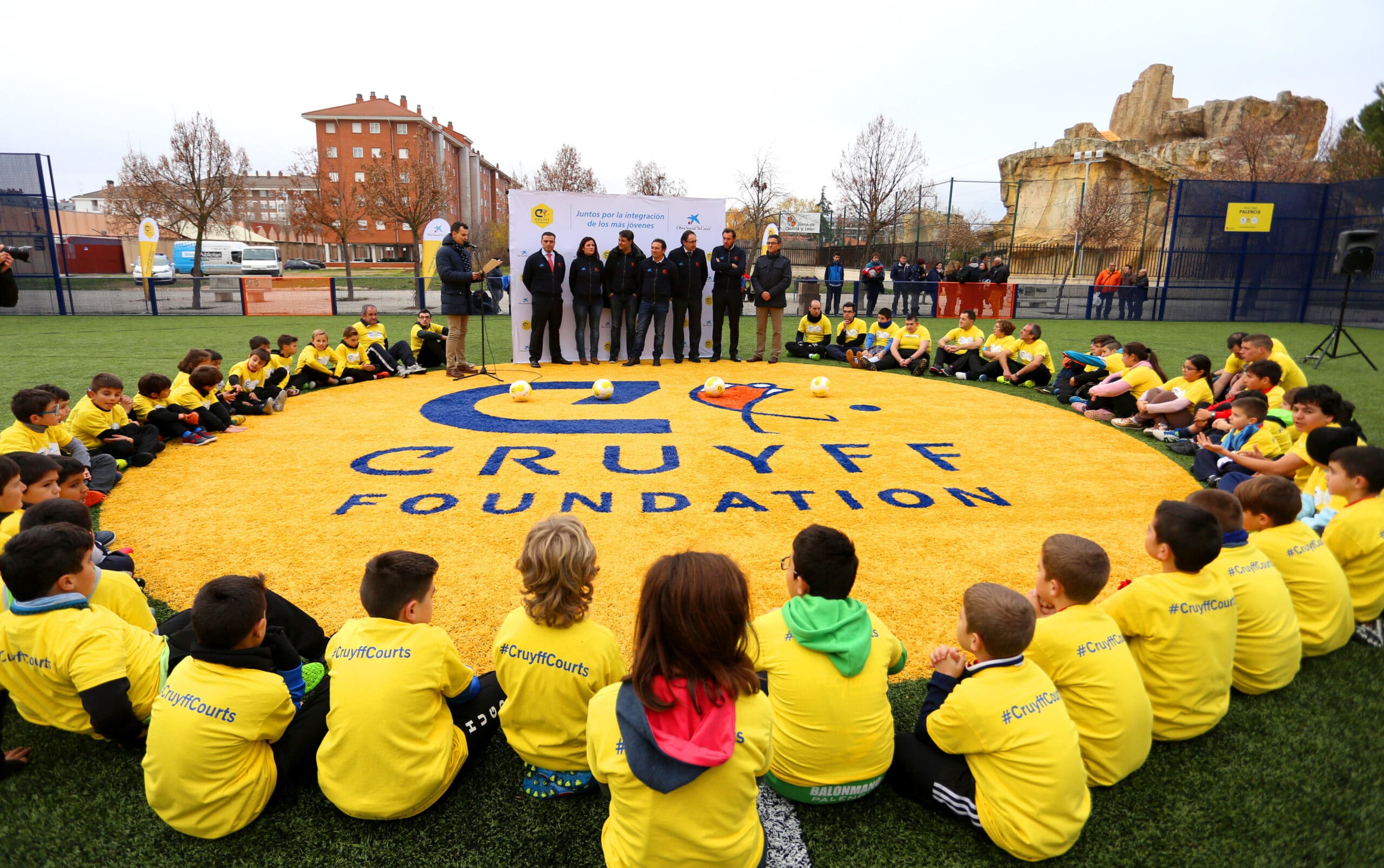 The inauguration of a football field by the Johan Cruyff Foundation in Palencia, Spain.
The inauguration of a football field by the Johan Cruyff Foundation in Palencia, Spain.© R. Ortéga
It should come as no surprise that the Netherlands is also taking the lead in new initiatives regarding community work and football. Leon Vlemmings (former trainer of NAC Breda, PSV Eindhoven and Feyenoord, amongst others) launched De Waardevolle Club (the Worthy Club) initiative, which strives through football to create a sporting, healthy and better society. To this end, Vlemmings works together with sports administrators, scientists and business leaders.
He believes that projects relating to corporate social responsibility are currently too often parked in a separate foundation or department. ‘When we consider a football club as the pivot of a social network, as part of an entire ecosystem, the club has an enormous connecting force. If a club enters into a dialogue with its environment, the club can be repositioned to work within the major social themes that are important for its city or region.’
Leon Vlemmings (De Waardevolle Club): 'When we consider a football club as the pivot of a social network, the club has an enormous connecting force'
Vlemmings gained experience with this method as general manager of the Noord-Brabant club Helmond Sport, where he set up the Heel Helmond Sport (All of Helmond Plays Sports) campaign. With De Waardevolle Club, he now coaches fifteen clubs from Dutch professional and amateur football. The most concrete is the operation around FC Dordrecht, where the club is the pivot of the Energiek Dordt movement. ‘A regional survey showed that energy transition and vitality are two spearheads. We work on social change through innovation with the club as the pivot. We are developing several dozen projects surrounding green and sustainable energy, and bringing companies together to exchange ideas and work together on a sustainable energy platform.’
Vlemmings says he was inspired by Forest Green Rovers, a modest English club that, after its takeover by Dale Vince, a pioneer in green energy, was transformed into the ‘most ecological football club in the world,’ with vegan-only meals, an electric player bus and the end goal of becoming the world’s first zero-emission club. These policies have provided Forest Green Rovers with both commercial and sporting success. The same applies to the German SC Freiburg, which aims to be climate neutral throughout its operations. ‘If people find what you do interesting, they will follow you, and you almost automatically make an impact. But that means a club has to work on something that many people, not just the fans who already come to the stadium, find valuable. But in the long run, the club builds its fan base while it strives towards a better society,’ says Vlemmings.
My team, my home
That good examples are contagious is also apparent from the creation of the Belgian group Younited. In 2009, some clubs were inspired by a TV program about the Homeless World Cup, a tournament organised for teams of homeless people. The similarly named Belgian Homeless Cup grew out of this and has since evolved into Younited.
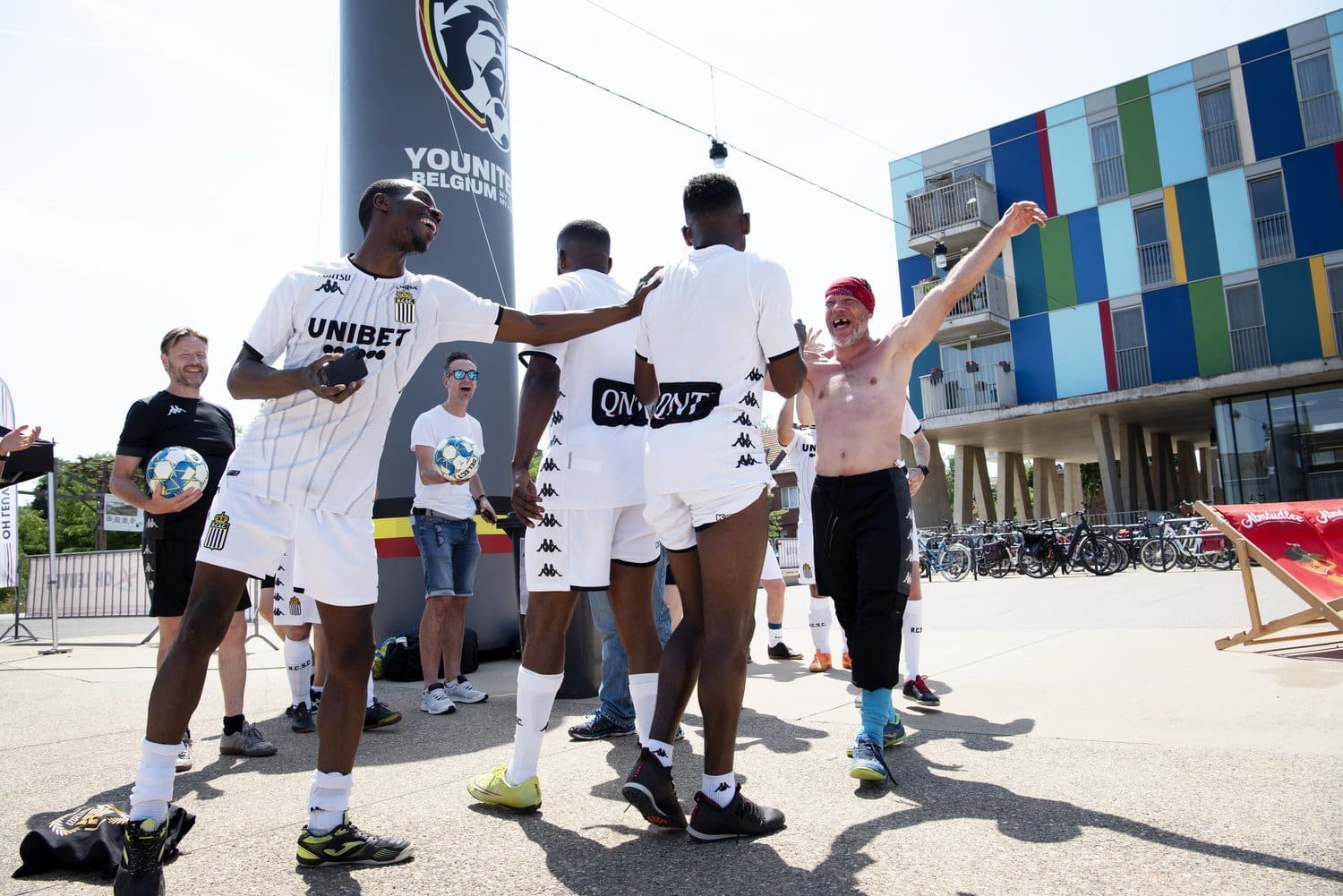 Bert Ballegeer (Younited): 'With us, you are away from the context of client and care provider for a while. Participants are players, and they have a coach. That way, we create a different kind of bond, and that's how we work on social relationships’
Bert Ballegeer (Younited): 'With us, you are away from the context of client and care provider for a while. Participants are players, and they have a coach. That way, we create a different kind of bond, and that's how we work on social relationships’© Younited
‘We opted for a new name a few years ago, because our target group is, in fact, broader than just the homeless. We focus on the experts in daily survival, a community that is larger than just people who live on the street,’ says coordinator Bert Ballegeer. The slogan My Team, My Home completely sums it up for Ballegeer. Younited offers people a home through their football club and in this way tries to involve them (once again) in society. ‘We are an instrument for aid workers. If you want to integrate people into society, you will first have to involve them in a small group. We provide that opportunity. The methodology is the same, but it is away from the context of the client and care provider for a while. With us, participants are players, and they have a coach. That way, we create a different kind of bond, and that’s how we work on social relationships,’ says an enthusiastic Ballegeer.
Bert Ballegeer (Younited): 'If you want to integrate people into society, you will first have to involve them in a small group'
Since its inception in 2009, the number of clubs has grown to thirty. It is always a football club that works together with local social partners such as the Public Centres for Social Welfare (PCSW) or the Centres for General Welfare work, but the projects also include shelters for the homeless or drug addicts. Younited is co-financed by the Pro League and the various governments in Belgium, each of which provides approximately 45 percent of the annual budget of 150,000 euros.
Until now, Younited has mainly focused on professional clubs and the larger cities but is increasingly looking at smaller cities and municipalities. Recently, two Younited cycling teams have also been founded, using the same methodology. All the teams together reach about five hundred people every week and organise about one thousand training sessions every year.
A golden triangle
‘Younited is a textbook example of what community building can do, thanks to sports and football,’ says Jeroen Scheerder. ‘Because of this operation, former prisoners have been given new opportunities and have been able to integrate into society. You cannot refer to such projects as window dressing; in fact, they are very valuable initiatives under the umbrella of the professional clubs that have made a difference for many participants.’
Of course, football will not save the world. ‘Nobody can. But we can do our bit because this is pure social gain. If these social programmes are linked to education and local government, then there is a golden triangle that can make a difference,’ Scheerder concludes.


